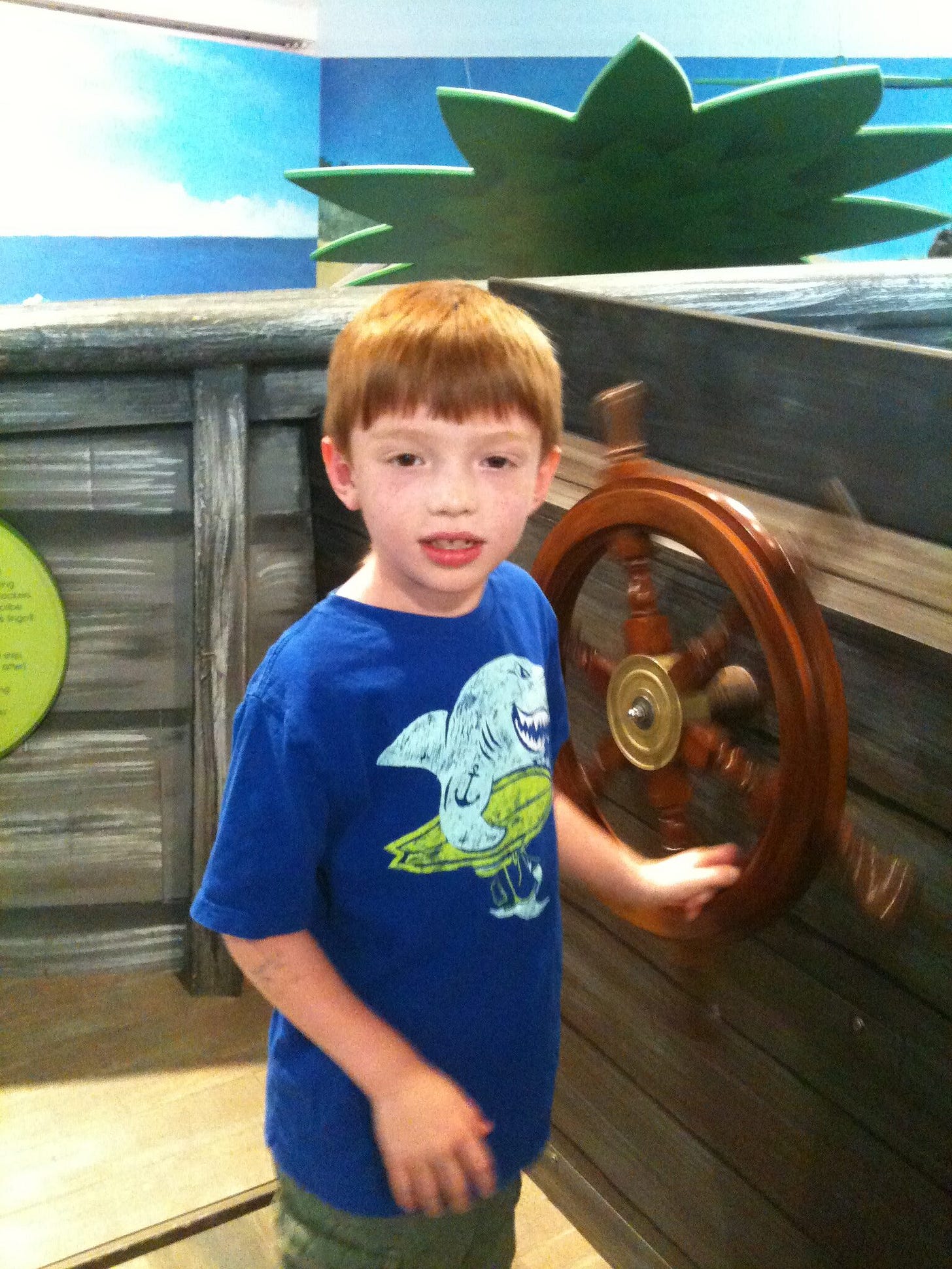This piece has been in development for the past 2 months, and I decided that it was finally time to just push it out to the wild. I may update the piece, make it longer, add addendums, etc. But the core ideas are here and are supposed to be a different view than what people may assume is the case.
I was six years old, beginning my time as a Kindergartener in a big school—or at least it seemed big when you had to look up to do essentially everything.
I was in my class; which aspect of the class will remain a mystery since I had one primary teacher and stuck with them for the entire year, and I was called upon to answer a question. But, after being called upon to speak what should've been the correct answer, which I did know, mind you, I did what the only rational thing at the time was: Break down into tears at the fact that all eyes were on me, people looking to me for something, as little as an arbitrary elementary problem.
My classmates took pity on me, and my teacher gently sighed to silently assure me that I knew the answer and to say it. But I couldn't.
I couldn't do it at that moment in time.
I. Journey through Juvenescence
My growing up came at a reasonable time in history. The internet was rapidly accelerating in what it could do, yet there could still be some pretense of living without much electronics. I was squarely in the middle of such an ordeal, playing video games on the weekend and with friends during school.
I forgot to add "nearly-non-existent" and "special" before friends. My bad.
From kindergarten onwards, and to a degree going back to pre-school, I was often pulled out of class for speech therapy and, by extension, was involved in other special education activities, like "lunch group."
Speaking of lunch groups, it is quite the disconnect to assume that all students in special education would need such a program. In hindsight, I should have considered why I may have been put into such a group more closely. But such a thought never crossed my mind.
Hey, maybe I thought I was special in a positive way!
Of course, the whole point of lunch group, as I have learned now that I am in an older position than I was when I sat down at those crickety tables, is to become more knowledgeable in social situations. This may have been difficult when the other people there were in worse positions than you were.
But I kept going, as lunch group was a minor element of my life, much less social life and other activities, as I attempted to better fit in with my peers.
Speaking of lunch groups, it is quite the disconnect to assume that all students in special education would need such a program. In hindsight, I should have considered why I may have been put into such a group more closely. But such a thought never crossed my mind.
Hey, maybe I thought I was unique in a positive way!
Of course, the whole point of lunch group, as I have learned now that I am in an older position than I was when I sat down at those rickety tables, is to become more knowledgeable in social situations. This may have been difficult when the other people there were in worse positions than you were.
But I kept going, as lunch group was a minor element of my life, much less social life and other activities, as I attempted to better fit in with my peers.
An ultimate problem with that belief is when one's way of thinking differs substantially from what one's peers think, significantly when the mindset contrasts with the definition of "fun."
Fun, what is fun? What makes something fun? I can't give a definitive answer to any questions about that. I am not a philosopher by trade, but it likely involved rationality. I could not see a direct benefit from doing the activity.
The issue with this is that this led to a stubborn refusal to do many activities that many would deem "fun" or "engaging," sometimes leading to less favorable results. Such has been such a thought process for me even still in the present day.
But as far as I knew, such actions were necessary for me, even if I didn't see how other people would have viewed them. Of course this often led to dismal mental health conditions as a result. But I just couldn’t get myself to do something that I subconsciously didn’t see the point in doing.
Even if I tried to engage with peers and have fun with them, something just never clicked. I had a few friends, but they were also outliers and had other issues going on with them. It never felt like I knew what I was doing when socializing.
It was never enough.
II. Social Stimulation & Sensory Situations
It would be defeatist if I never mentioned the COVID-19 Pandemic. This worldwide event interrupted the end of my middle school years and the start of my high school years. It impacted my development, but its exact nature will never be known.
Regardless, it is essential to note that as one gets older, the general expectation is that one meets more people in places and different social situations, if you will, both in a personal and professional setting, and act in a particular manner.
One key component of, dare I say it for the first time, neurodivergence is sensory issues and discomfort in high-stimulatory environments. While I don't necessarily share all of the more visible elements of that factor, some incidents and examples make more sense when you look at it from an abnormal angle.
The most significant "quirk" is my repulsion of "unprofessional" touch. Only cordial handshakes and hugs with people I know very well were permitted in my handbook. Everything else either received an awkward reciprocation or rejection from the gesture. Much to people's surprise.
Simply put, if you touched me in a way that was not really needed, such as holding hands for a group activity or putting your head practically on my shoulder, I would likely freak out because I do not innately know the proper social etiquette behind it and am just not comfortable with those actions.
The examples mentioned above were incidents that occurred to me while I was on group experiences, where I was subconsciously taught social norms that teenagers are seemingly wonderful doing even if the outsider may view them as weird when you barely know the people.
You can probably tell that based on the above paragraph alone, I either a.) have some sort of mental issue or b.) am from a relatively reclusive family that kept to itself. Both of these are correct to some degree.
What I will say is that the trips opened my eyes to different social relationships than what I had been accustomed to, the meaning of words and gestures, and the meaning of what can be accurately considered a "friend" in a society where social media considers all as such.1
III. Finding My Own
While the personal side struggled greatly, work and the professional tones that came with it thrived with me. Because of my view of thinking, I had a knack for developing and executing effective solutions to my problems with little time or effort, much to the pleasure of my employers.
While my peers considered me different in other aspects of my life, my work never had an equivalent. My bosses found my work and personality suitable enough for the job for me to have external encounters with clients.
With each client I met and interacted with, I always received compliments about my work ethic and ability to get what's needed done—no required flowery fluff. This is a plus when efficiency is critical to my mindset.
As I often did everything independently and with few social constrictions, there was a time and place for how I became the person I am today.
The most significant thing that may be frowned upon in a time where collective emotional identity is crucial to business and society is that I don't care what many people think of what I do, what I speak, how I act, etc. If there is no harm to be done and I am getting the work done in the same fashion and manner as everyone else, why should one go through the motions of small talk? The pretense of going through the motions is draining, and there are other ways to go about things. What's the harm of doing that?
Music has also been a critical difference in how I go about my life. My headphones, considered standard among Generation Z, are a lifesaver in that regard. Why deal with loud noises of places when you can listen to what you like? There's no complexity behind it; really, there isn't.
The central kicker was on the eve of my 18th birthday when I was finally told of the proper diagnosis that had been given to me shortly after I was 3. Only 15 years later, as I said, and only so I could use it in meetings if needed.
The label is no longer supported in modern medicine and now falls under another umbrella that I won't explicitly mention but can be rightly assumed under "neurodivergence." I'll let you do the math on that one.
IV. Acknowledge & Accept
When people are informed of their neurodivergence, several questions and comments usually accompany the initial discovery. These range from "Oh, you don't look like it!" to "What do you have?"
Why does it matter? Why is there always this grand attempt to see the exact problem with people? This is especially true in today's societies, where younger generations have happily embraced labels and almost collect them like Pokémon.
Of course, people would respond by stating that they wouldn't have thought one is neurodivergent, especially considering their supposed academic success and the appearance that they give to others.
Now, I am not going to start talking about masking. It's not that I don't believe in the terminology; it's just that I don't think my experiences fall under that. But the core tenet remains. People may have their guesses, but there often is no evidence to back them up. Why should they have that access?
The right way to go about this is to inform the patient early. This way, they know that it's not like there's an invisible forcefield and that there is something not so much wrong as different enough from them that it may get noticed in the psychiatric field.
And no, I am not pushing for medications or anything in medicine. Having that third-party advice is crucial for people to understand that they are not alone in the grand scheme of the globe.
Don't listen to the stigmas; what others may tell you is wrong. Embrace your different mentality and use it to make some good in the world.
Do what makes you well and do what is right for you and the world, and together, we will all thrive in the global village.
If you enjoyed this post, please let me know! I plan to transition this newsletter into a weekly blog to be more of themes relating to Gen-Z social trends and neurodivergent commentary, and pop culture reviews. Basically what I’m still doing now, but more “defined”.
I wrote a post in March, 2024 regarding friendships, and may write a “sequel” piece discussing the fading nature of traditional friendships, especially collegiate ones. We’ll see.




